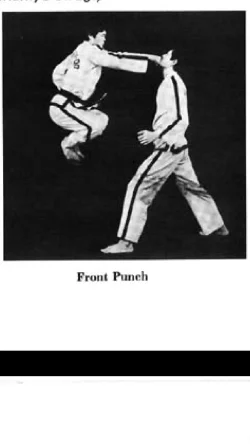I'm missing something here, JGW. He's training TKD for fun and point sparring. I presume that means he's doing TKD during his point sparring.
Follow me on this. This is how my brain sees it.
TKD teaches TKD fighting techniques.
TKD fighting techniques are in the forms.
TKD Fighting technique application is done as part of the drills.
The only real way to understand how to apply the techniques is through sparring because it includes things like, timing, distance, speed, baiting etc.
If you are using TKD techniques during sparring then you are using TKD fighting techniques during sparring.
If you don't use TKD techniques during sparring then you aren't using TKD fighting techniques.
If the purpose of sparring isn't used to learn how to apply the TKD fighting techniques, then what techniques are you applying? If the purpose of sparring is only to win then you can basically just do any sort of thing that doesn't have to be TKD. For example, those long diving punches to tap an opponent on the head, which is a Point Sparring technique but not a TKD technique, because diving punches are not in the TKD forms nor are they a part of it's fighting concepts.
If you don't train to learn how to apply TKD techniques (which are fighting techniques), then how can one say they are doing TKD in sparring? My point is that there is no way you can do TKD sparring without learning how to apply TKD techniques in sparring.
I'm making this comment because someone stated (can't remember off the top of my head), that they do sparring to win. So if that person isn't using sparring to learn how to apply TKD techniques then what is that person winning with?


